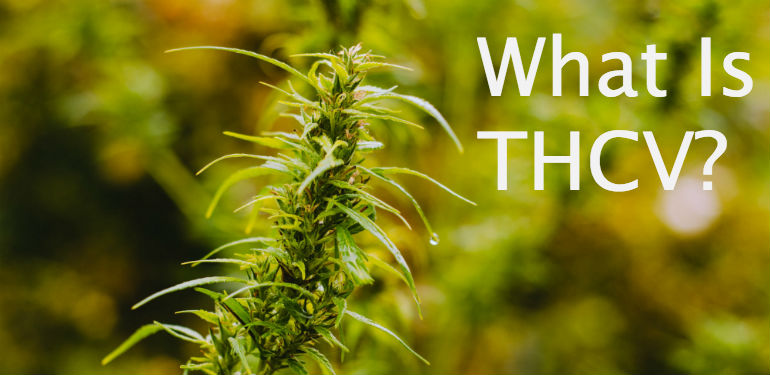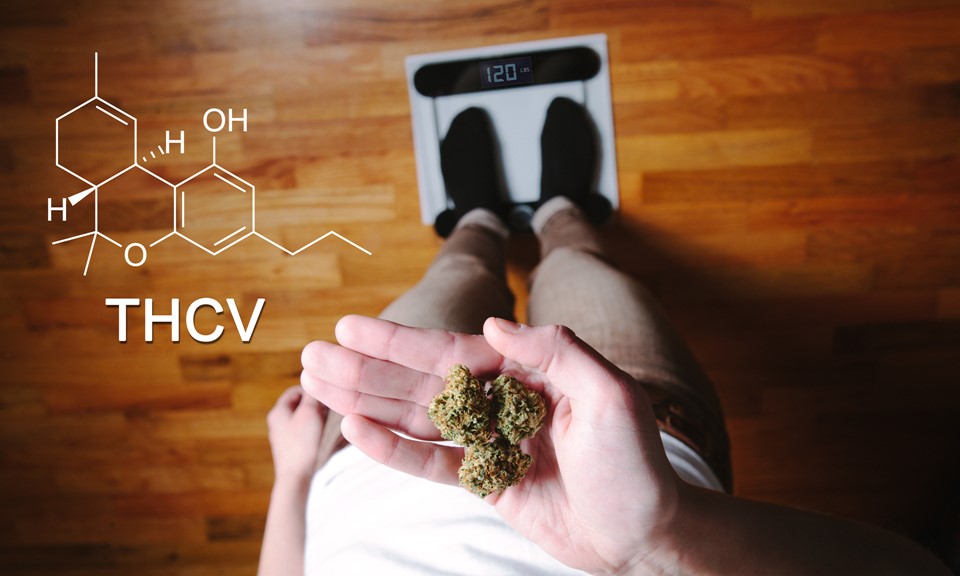Tetrahydrocannabivarin (THCV) is a cannabinoid compound discovered in marijuana and hemp plants. It's chemically similar to tetrahydrocannabinol (THC) however with some crucial distinctions. Here's whatever you need to learn about THCV including the threats, benefits, distinctions, and resemblances with other kinds of THC and more. What Is THCV? THCV is a less common cannabinoid discovered in some pressures of marijuana, specifically African sativa.
 THCV: Everything You Need to Know CannaMD
THCV: Everything You Need to Know CannaMD
 Tetrahydrocannabivarin - Wikipedia
Tetrahydrocannabivarin - Wikipedia
 Tetrahydrocannabivarin - Wikipedia
Tetrahydrocannabivarin - Wikipedia
THCV has a 3-carbon side chain rather than THC's 5-carbon side chain. This difference is subtle, but it has Additional info a visible impact on the effect profile. THCV is somewhat psychoactive however just about and about. What Does THCV Feel Like? THCV has a strong energy-boosting element to it, that makes it particularly popular among trainees and professional athletes.
In the United States, THCV policy is nuanced. THCV is not an Arrange I Drug, but marijuana extracts are making it rather ambiguous what the federal position is on THCV. The 2018 Farm Costs states that hemp plants and all derivatives of the plants are legal on a federal level, a lot of companies comply with this law and still supply THCV to clients by just extracting the compound from hemp plants.
If THCV is considered a THC analog, it could be controlled in the future by the very same guidelines as THC under the Federal Analog Act. This act mentions that any substance that shares a similar molecular profile as a known forbidden compound it's included in the very same drug Schedule category.
What Are the Results of THCV? Proponents of THCV report that it produces an extreme burst of energy and makes them feel blissful without the mental cloudiness triggered by THC. The effects are extremely mild compared to THC. The results are nearly exclusively cognitive why thcv is healthier than thc yet somehow have very little effect on headspace.
2. THCV & Appetite Some THCV users declare that it curbs their appetite. This is a typical impact of other focus-enhancing substances also. It's as though THCV removes the diversion of other physical processes (like hunger) in order to protect resources and attention to cognitive tasks rather. How Does THCV Work? Cannabinoids produce biological results in the human body by communicating with endocannabinoid receptors.
CB1 receptors lie in the nervous system and communicate with neurotransmitters in the brain to produce mind-altering effects. Interaction with CB1 sites is what gives some cannabinoids like THC their psychoactivity. THCV is a bit difficult to understand since it's primarily a CB1 villain, suggesting it has the opposite result as THC.
While researchers are still seeking to understand this process, it appears THCV has the ability to block the results of CB1 in low doses and stimulate them in high dosages. CB2 receptors are found primarily in the body immune system. THCV is a partial agonist of CB2, however how much thcv is in durban poison the impacts of this partial activity aren't well-known, and it apparently has no discernible influence on THCV users' experience.
As mentioned in the previous area, THCV is a CB1 villain in low dosages which is the precise opposite effect of delta 8 and delta 9 THC. This might suggest that THCV combats some of the psychoactive effects of THC. This impact might describe why individuals who use THCV feel so clear-headed specifically compared to the notorious "fogginess" induced by delta 9 THC.